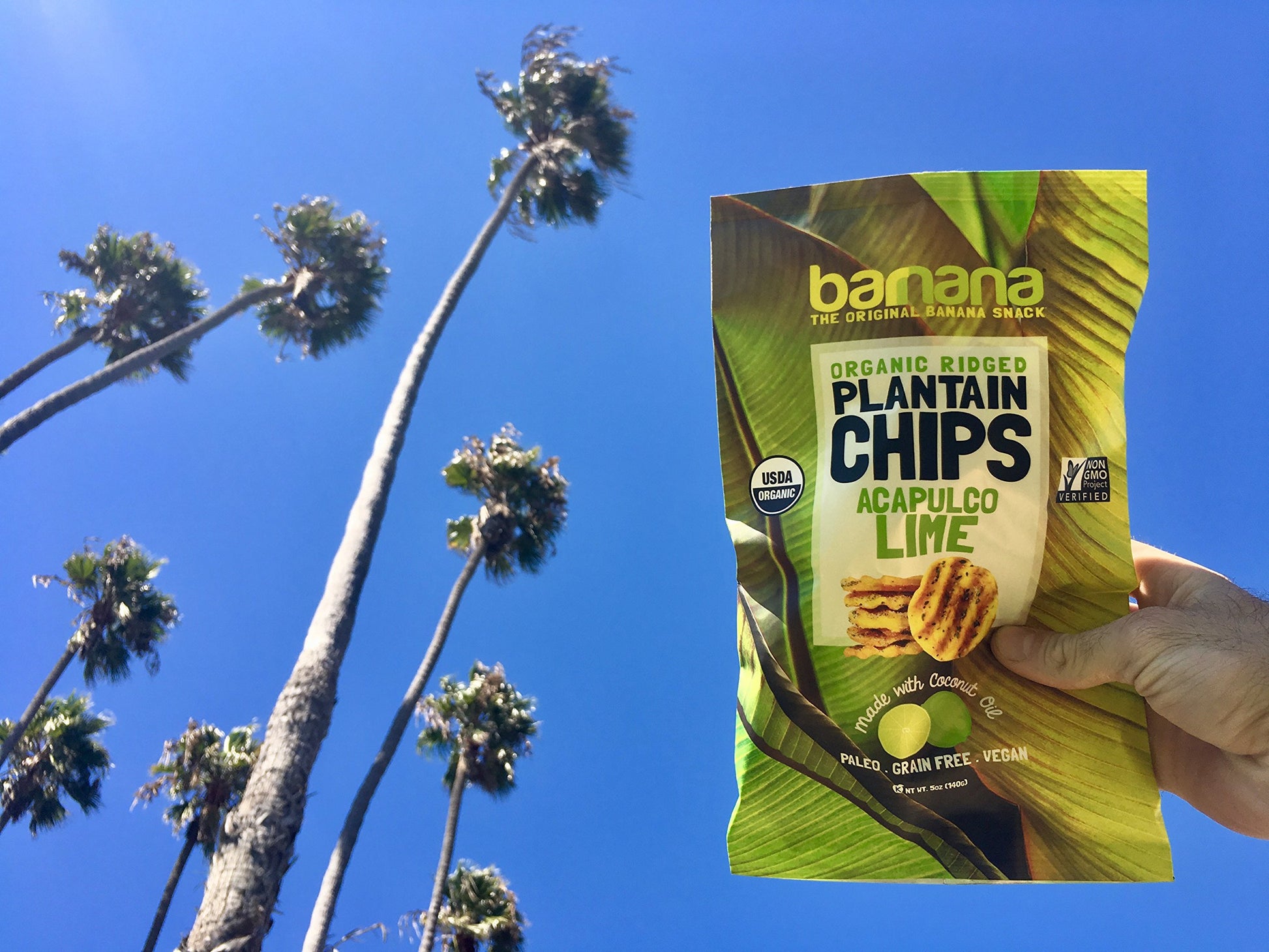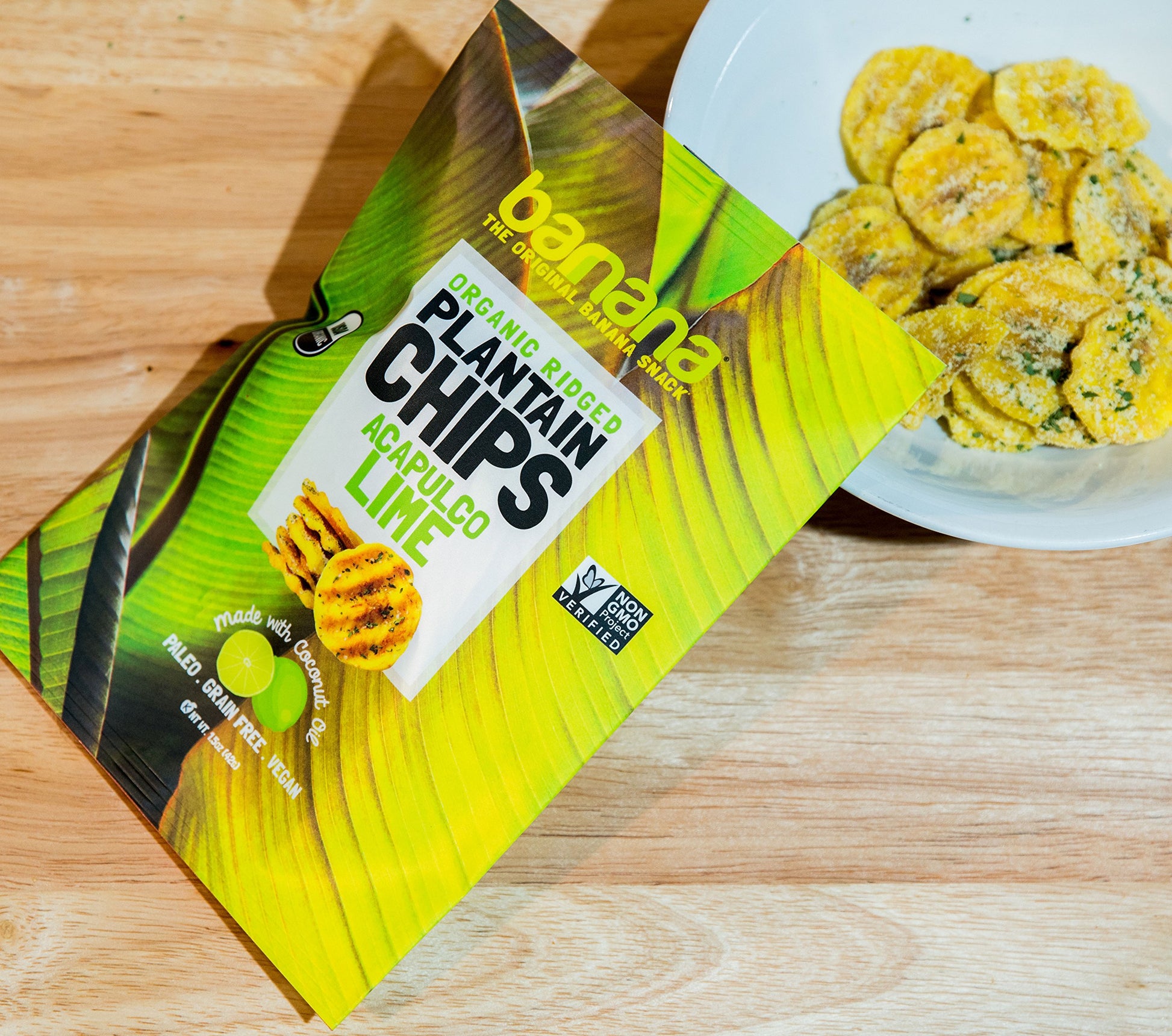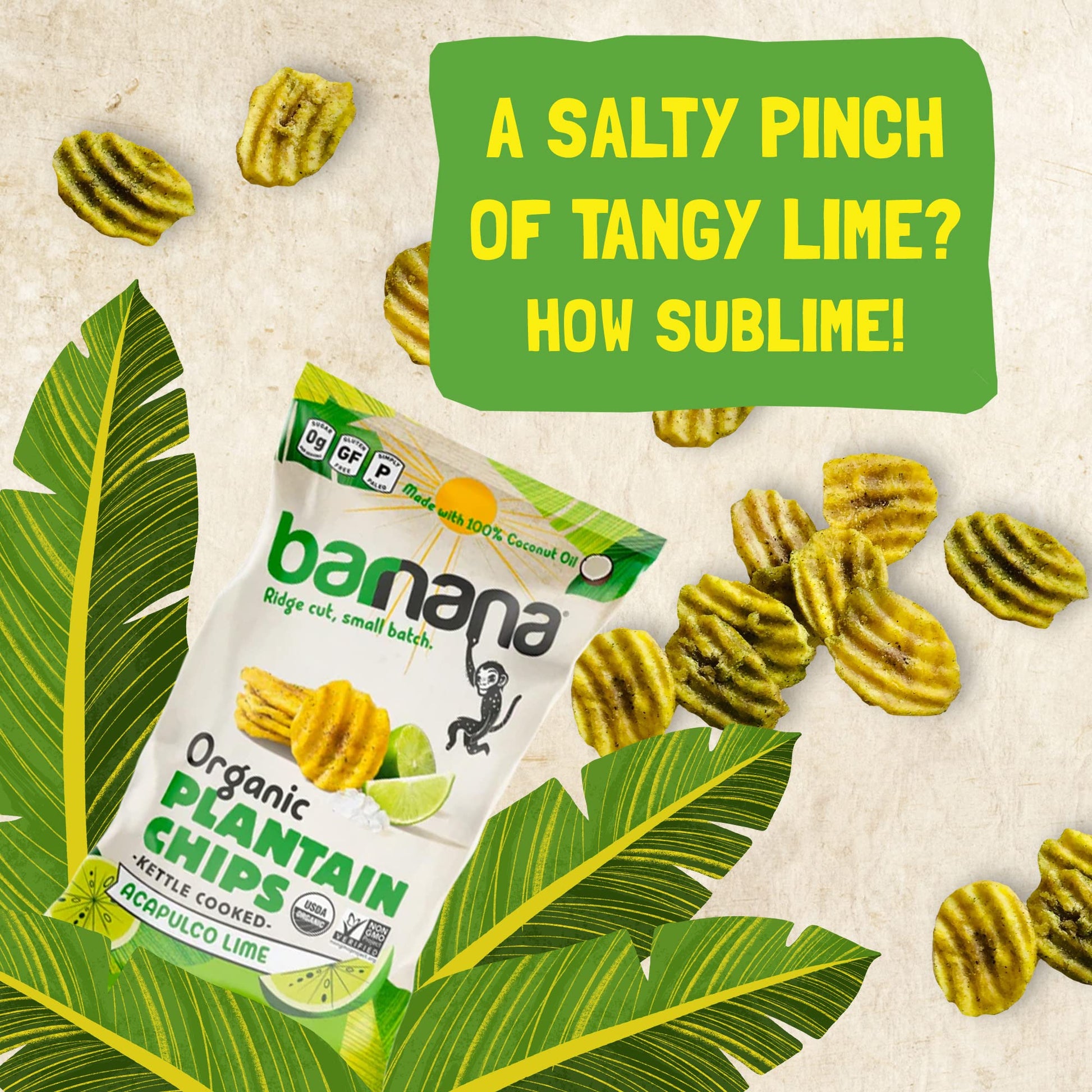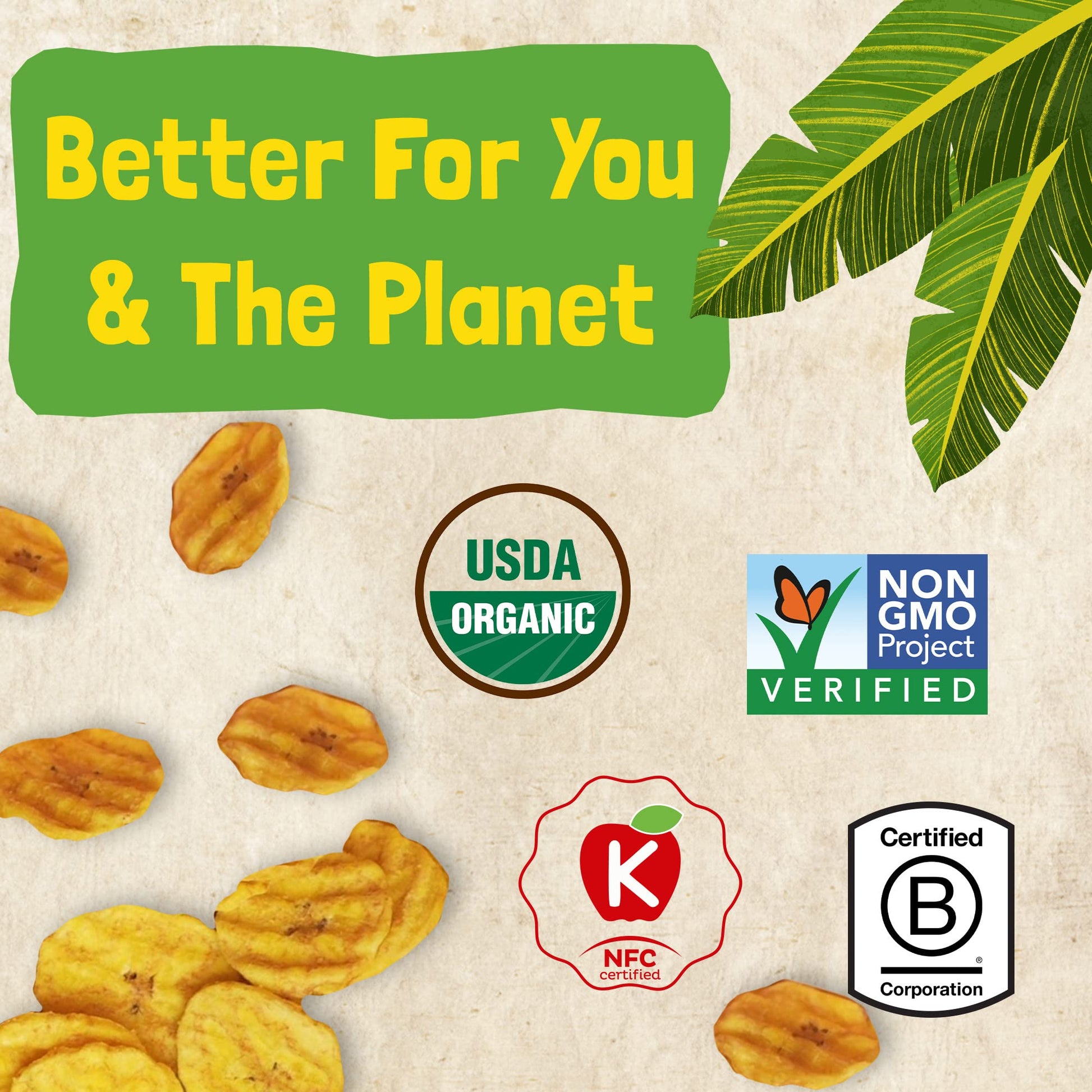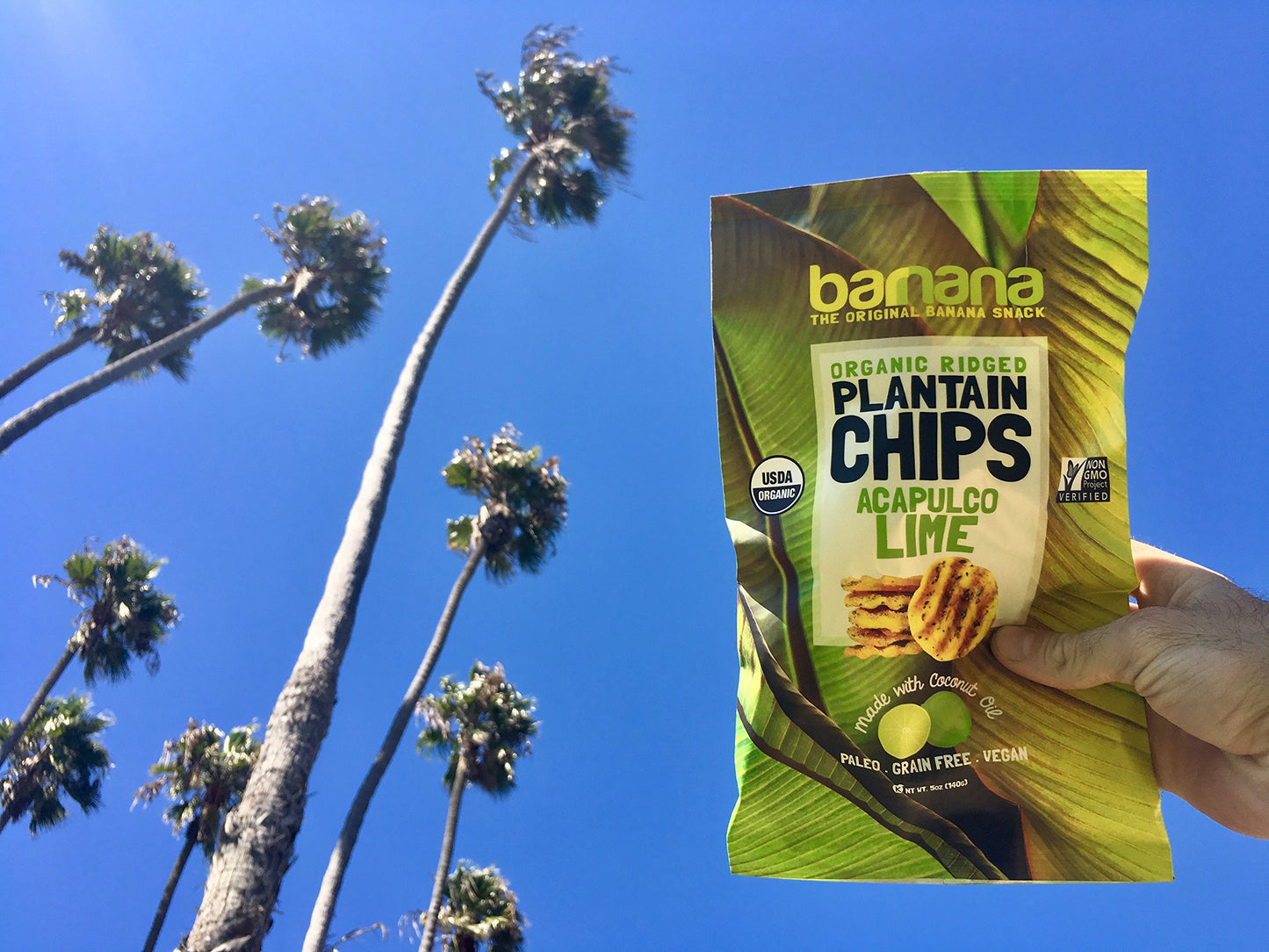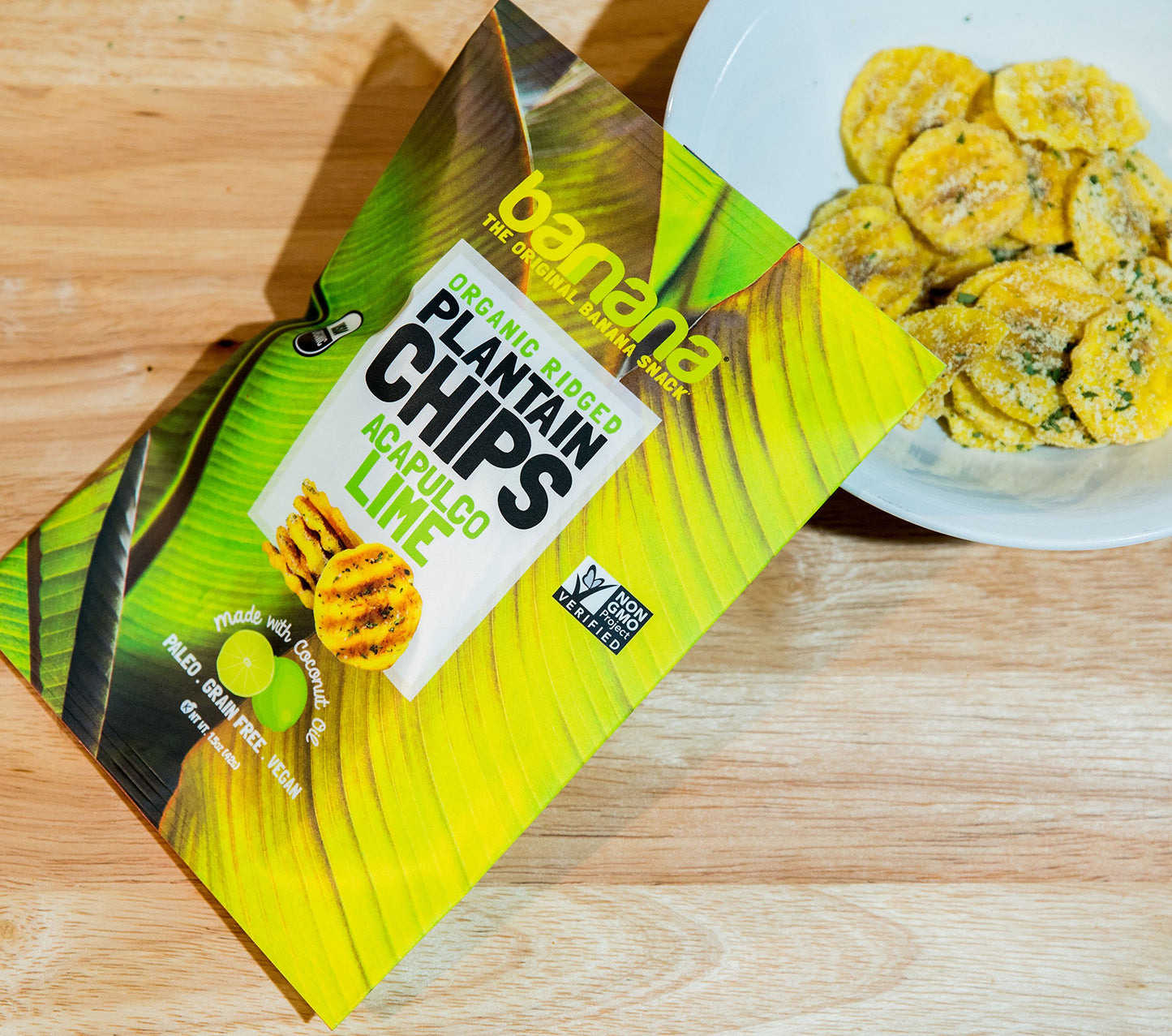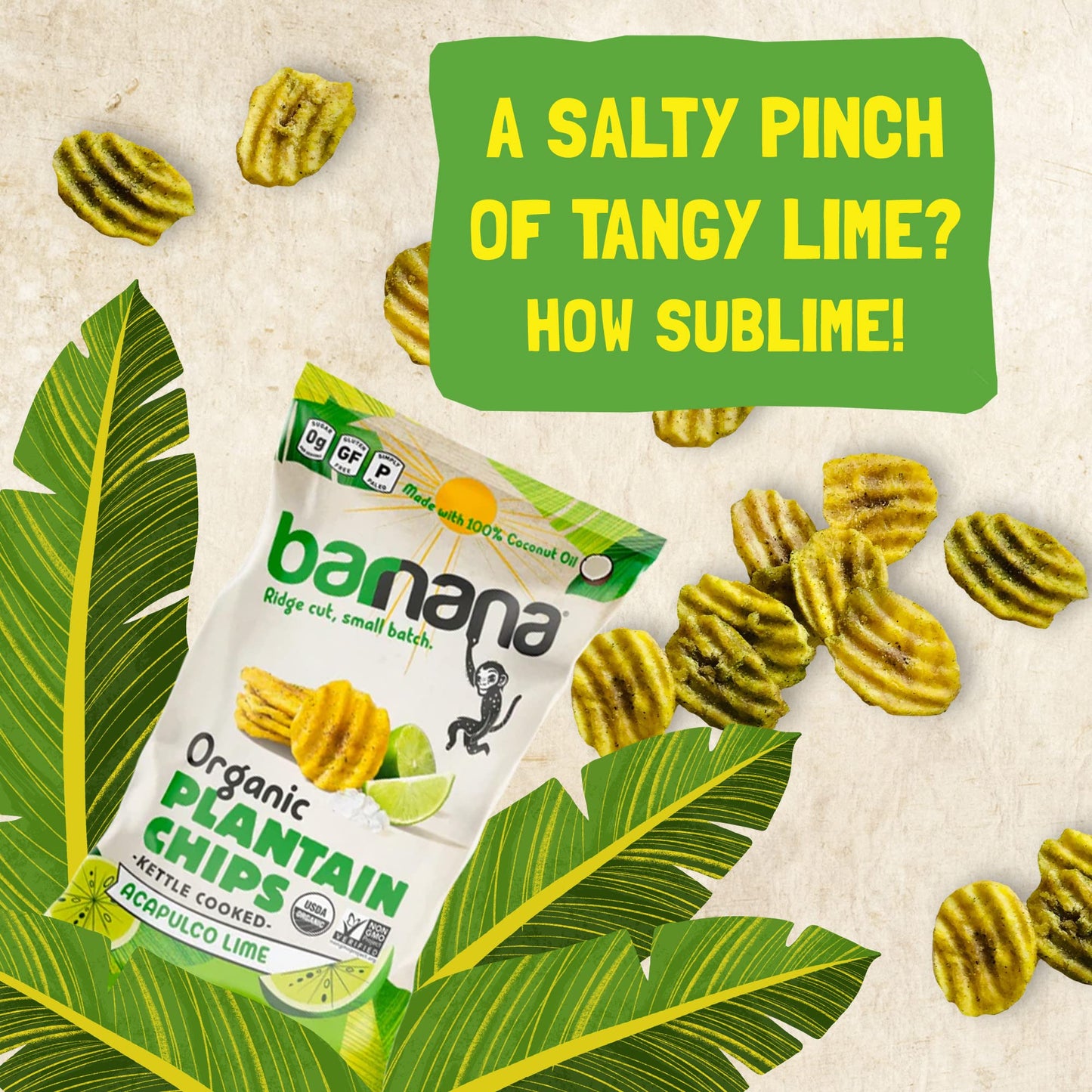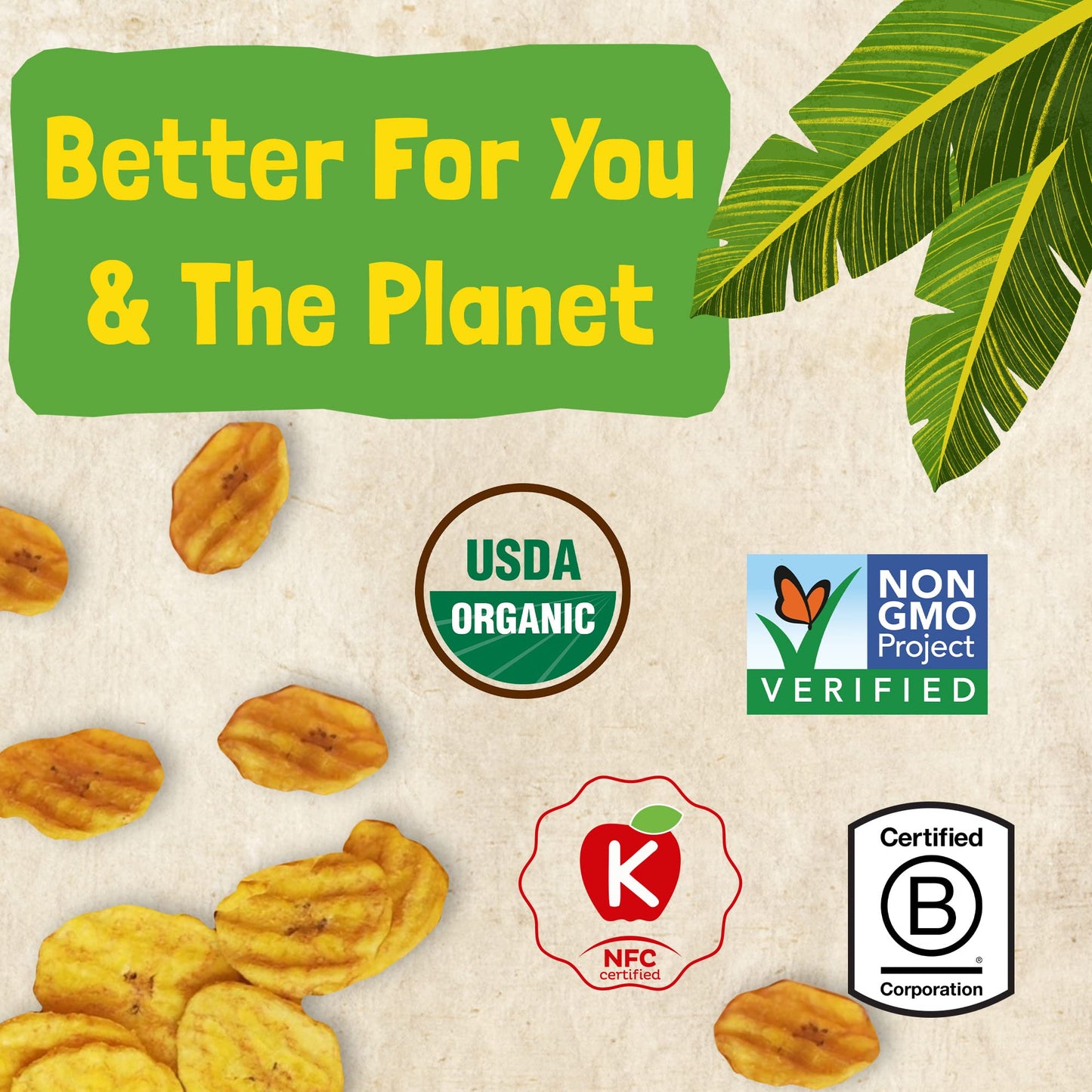You will not be allowed to compare more than 4 products at a time
View compareProduct Description
Barnana’s Acapulco Lime Plantain Chips are a crispy crunchy nutrient dense delight. These chips are loaded with tangy lime & a pinch of sea salt to spice it up a little mas, try dipping ‘em in salsa or guacamole! Made from organic plantains these satisfying snacks are delicious and Whole30 approved. On top of that Barnana is one of the best organic snack foods you’ll find. All our products are USDA Organic Certified, Non-GMO Project Verified and use Fair Trade Certified Chocolate, Fair Trade Certified Coffee, and RSPO Certified Sustainable Palm Oil.
Frequently Asked Questions
- Q: What ingredients are used in Barnana Organic Plantain Chips? A: Barnana Organic Plantain Chips are made with simple and clean ingredients, including organic plantains, 100% coconut oil, lime juice, and a splash of lemon juice. These ingredients ensure a delicious and healthy snack option.
- Q: Are Barnana Plantain Chips healthy compared to traditional snacks? A: Yes, Barnana Plantain Chips are a healthier alternative to traditional salty snacks. Made from whole-food plant ingredients, these chips are gently fried in coconut oil and provide the same craveable taste and crunchy texture as conventional chips.
- Q: How can I enjoy Barnana Plantain Chips? A: You can enjoy Barnana Plantain Chips as a standalone snack or pair them with dips like salsa or guacamole for added flavor. Their tangy lime flavor makes them a versatile addition to any snack time.
- Q: Are Barnana Organic Plantain Chips suitable for specific diets? A: Yes, Barnana Organic Plantain Chips are Whole30 approved and meet various dietary preferences. They are USDA Organic Certified, Non-GMO Project Verified, and made with fair trade ingredients, making them a great choice for health-conscious consumers.
- Q: What makes Barnana a sustainable snack choice? A: Barnana is committed to sustainability by sourcing plantains that grow in the Amazon and using excess crops that would otherwise go to waste. This practice helps reduce greenhouse gas emissions and supports local farmers engaged in regenerative agriculture.


